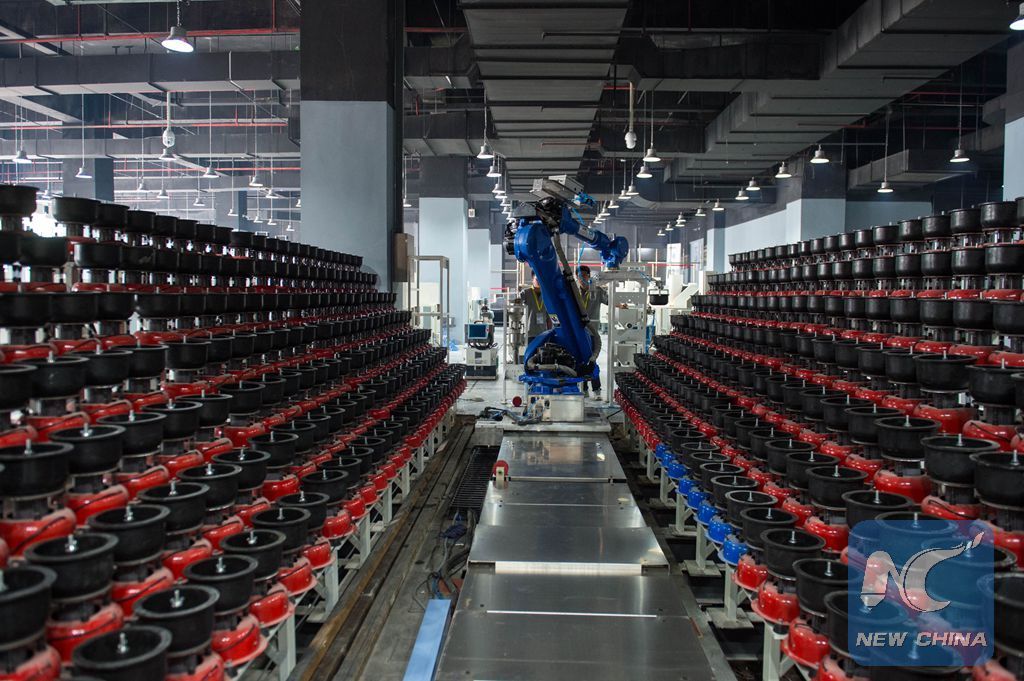
Visitors watch the robot welding system during the Aluminium China 2016 at the Shanghai New International Expo Center (SNIEC) in Shanghai, east China, July 12, 2016. The Aluminium China 2016 started at the SNIEC on Tuesday, attracting more than 400 enterprises in aluminium industry from over 30 countries and regions. (Xinhua/Fang Zhe)
MEXICO CITY, Aug. 7 (Xinhua) -- Leaders of G20 countries are expected to seek to foster innovation in industry when they meet at a summit in Septembr in China, yet they will have to ensure current jobs are maintained, Mexican economist Jorge Sanchez Tello has said.
The use of high technology would favor economic development by boosting efficiency and productivity, the researcher from the Financial Studies Foundation at the Autonomous Technological Institute of Mexico told Xinhua in an interview.
However, he warned that innovation risks having a negative impact if countries do not create conditions for workers who risk being replaced to find other jobs.
"The impact of innovation on the replacement of the workforce is a very important topic. Robots are replacing people in ever more industries, especially manufacturing," said Sanchez Tello.
He believed that alongside innovation, the G20 countries will have to discuss ways of improving education, creating new jobs and boosting the training of the workforce.
The researcher said he saw China as having a particular interest in discussing innovation during the summit, given that the positives and negatives of technology are a focal point for relations between developed and emerging countries.
"We are about to reach a new industrial revolution where robots will virtually replace much of the workforce," said Sanchez Tello.

A polishing robot works at site in a robot experience center in Kunming, capital of southwest China's Yunnan Province, June 12, 2016. (Xinhua/Hu Chao)
This will only be exacerbated, he noted, by growing discontent with free markets, as exemplified by Brexit and U.S. Republican presidential nominee Donald Trump's anti-trade rhetoric.
Sanchez Tello said the "rise in protectionism is not the fault of globalization but a consequence of increasing financial volatility. All these points will be part of a great debate the G20 will have on the impact that globalization is having on workers and on companies."
China, who currently holds the rotating presidency of the G20, has said that the summit will seek to foster better global innovation, economic governance and increased international investments.
That China is organizing this summit, to be held in the city of Hangzhou on Sept. 4-5, serves as a recognition of its momentum as a pillar of the global economy, he said.
"While China still has a long way to go, the U.S. and China are the two pillars of support of the world economy. It is only natural, and actually happens quite late, for China to host the G20," he said.

